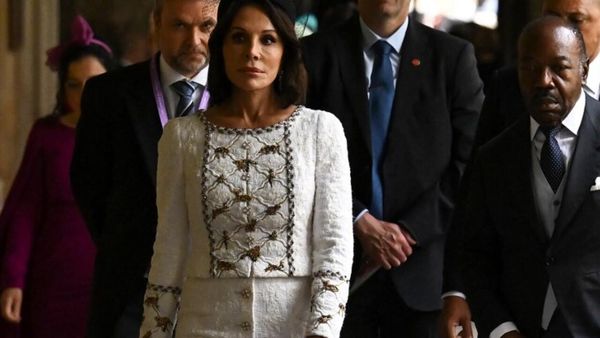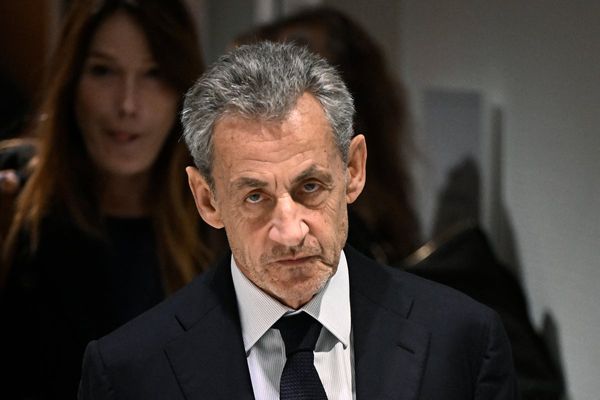
Washington, DC – Despite growing anger in Washington and US President Joe Biden’s threat that Saudi Arabia will face “consequences” over oil production cuts, analysts say a fundamental change in relations between the United States and the Gulf kingdom is unlikely.
The furore over a recently announced oil output reduction is the latest display of tensions between the two allies, whose ties have endured a series of setbacks in recent years.
“I don’t think we’re likely to see a divorce proceeding from this sort of troubled marriage,” said Annelle Sheline, a research fellow at the Quincy Institute for Responsible Statecraft, a US-based think tank. “But I do imagine that we may continue to see more discontent from both the Americans and the Saudis, and just this question of ‘Why do we continue to take this from this country that calls itself our partner?'”
Riyadh has faced a firestorm of criticism in Washington after OPEC+ – which brings together OPEC and other oil producers, namely Russia – announced the output cuts this month.
The move will likely push up petrol prices for US consumers ahead of crucial midterm elections next month, and key Democratic Party lawmakers have called for fundamentally reassessing the US-Saudi partnership and for going so far as to end security cooperation with the kingdom.
US lawmakers rally against Riyadh
As the world’s largest oil exporter, Saudi Arabia is a major player in OPEC+, but members of the groups say they make decisions by consensus.
Saudi Arabia insists that the decision to reduce oil production is “purely economic” and aimed at stablising energy markets as central banks hike interest rates and fears of a global recession rise. Some of the country’s supporters also have argued that the security relationship between Washington and Riyadh is mutually beneficial, not a favour from the US.
But the White House expressed disappointment at the OPEC+ announcement on October 5. Chuck Schumer, leader of the Democrats in the US Senate, called the decision an “appalling and deeply cynical action” and promised to consider all legislative tools against Riyadh, including a bill called NOPEC. It would allow US courts to hear market manipulation lawsuits against OPEC.
Lawmakers also introduced two separate measures to halt arms sales to Riyadh, and Bob Menendez, chairman of the Senate Foreign Relations Committee, urged freezing “all aspects” of US cooperation with the kingdom.
Still, Sheline said the outrage in Washington may be “a tempest in a teacup” because the US remains dependent on fossil fuels and its partnership with the kingdom, which goes back decades.
Gerald Feierstein, a former US diplomat who now serves as director of the Arabian Peninsula Affairs programme at the Middle East Institute think tank, also said it is unlikely that the current tensions will substantially alter the alliance.
“We still have important interests with Saudi Arabia,” Feierstein told Al Jazeera. “We still share a number of important objectives, including regional and global security and stability.”
Feierstein said the US alliance with Saudi Arabia is transactional, not a “deep relationship”, but mutual interests are enough to keep it going.
“There have been issues; there have been flare-ups … where the relationship looks a little bit unstable, a little bit rocky,” he said. “But always it comes back to the reality that there are, despite everything, shared interests, and I think that that’s what sustains it.”
Riyadh defends decision
In addition to the oil cut’s potential effects on the US energy market, critics of Saudi Arabia have accused the country of siding with Russia in its invasion of Ukraine. They argue that higher global oil prices would generate more income for the heavily sanctioned Russian government to fund the war.
But the kingdom vehemently denied any political motives behind the move. In a statement last week, Saudi Arabia also appeared to confirm that the Biden administration had asked the country to postpone the oil cuts, presumably so they would not impact petrol prices before the US elections.
The Saudi foreign ministry said the kingdom “clarified through its continuous consultation with the US Administration that all economic analyses indicate that postponing the OPEC+ decision for a month, according to what has been suggested, would have had negative economic consequences”.
A statement from the Ministry of Foreign Affairs regarding the statements issued about the Kingdom following the OPEC+ decision. pic.twitter.com/Bo7JVPDzFo
— Foreign Ministry 🇸🇦 (@KSAmofaEN) October 12, 2022
Feierstein said that while reducing production may make sense for the Saudis economically, the US also has valid concerns about energy stability and inflation with Russia waging a war in Ukraine and global markets not looking promising.
“I think that both sides have a number of factors to point to justify their position,” he said. “… At the end, basically where you sit is where you stand.”
Still, some critics of the kingdom say the timing of the oil cuts cannot be ignored as they come so close to the US elections, which will decide which party controls Congress and will shape the rest of Biden’s term.
“I can’t overstress the drama that the timing has produced,” Bruce Riedel, senior fellow of the Brookings Institution think thank, said at a virtual event hosted by the Quincy Institute last week.
“MBS wants Donald Trump back. They fared very well in the Trump administration,” Riedel said.
“If the Democrats lose the House and the Senate, they’ll be one step closer to getting their man back into the Oval Office,” he said.
On Sunday, US National Security Adviser Jake Sullivan suggested that any move by Washington against Riyadh over the oil cuts was not imminent. Sullivan told CNN that Biden will consult with Congress when it reconvenes next week but would not act “precipitously”.
But some lawmakers critical of Riyadh hope this is the moment to reshape the partnership.
Congressman Ro Khanna told the Quincy Institute last week that the reduction in oil production has “galvanised” Congress.
“The timing of it is suspect,” Khanna said. “It also is a slap in the face to the president, who went to Saudi Arabia to try to engage. So I believe there will be consequences.”







